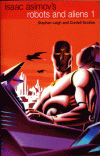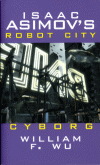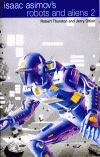When I learned that Stephen Hawking died, I have to admit my reaction was a bit selfish. I was disappointed that he wouldn’t be able to continue contributing to science, and that the world would be a worse off place without him. I didn’t think about how his close friends and family would be impacted. I was surprised about how sad I felt as well. I can’t say I’ve ever really felt a true pang of sadness upon learning of a celebrity death. Nobody should be surprised that he died, given his long history of health problems, but nevertheless, it was shocking. So why did I react this way now? I browsed through numerous news articles and posts throughout the day today without much reaction, but I felt sad again while reading through BBC’s article on his death, and again writing this post.
Maybe it has to do with recently reading the article “The Beginning of Time” that recently popped up in my news feed. I don’t think I could truly fully understand all of his theories, but I think his explanation here was clear enough to get a good idea. I’ve had The Theory of Everything: The Origin and Fate of the Universe audiobook on my backlog to listen to. I guess I’ll have to bump it up to next in my queue. I was already thinking about taking a break from Sci-Fi / Fantasy soon, so this makes my decision really easy.
Goodbye Stephen! Whatever the reasons, I’m truly sad you’re gone. I’m sure you will be never be forgotten by humanity, assuming we don’t destroy ourselves.



The book left me thinking more about philosophy that the actual story. I suppose that is a good thing. In Asimov’s forward, he brings up the biblical story of the Good Samaritan. In this story, Jesus answers the question, “Who is my neighbor?” The moral of the story is that love and mercy should extend to all people (humans). History in our century shows that we as a society do not treat each other as neighbors. In this fictional future, this does not change much. The central theme of this book is three robots attempting to answer the question, “What is human?” so that the robots would know who they should serve and protect. Further, the programming that only biological humans are important enough to protect is questioned. Wolruf, a wolf-like alien, and the sentient bird-like aliens are included in the programming as ‘human’ so the robots would protect them. The robots had a hard time believing that under the definition that humans are the highest form of being that Derec, Ariel, and Avery were human. I really enjoyed the development of the Robots’ search for the truth.
The line that I will remember most is the answer a philosopher robot gives to the question, “What is a human?” It answers, “That depends on your point of view.” Our society can definitely relate to this…since some groups categorize other groups as sub-human based on race, gender, accent, and dare I say immigrations status.
I am beginning to question why, in this story, robots are only directed to protect humans and not all life…
The Three Laws of Robotics were developed initially to safeguard humans against robots. If I remember correctly, programmers also wanted to ensure that robots were loyal to the humans in case they encountered aliens. In Asimov’s “Robot and Foundation Universe” humans mainly worried about protecting themselves, not respecting all forms of life. They thought that humans were at the top of the food chain and should stay that way.
The Robot City/Aliens books was the first time Asimov allowed other authors to write using the Three Laws of Robotics. He challenged them to approach his work from a fresh angle. It’s been a while since I’ve read these, but from what I remember, these new authors did a pretty good job.